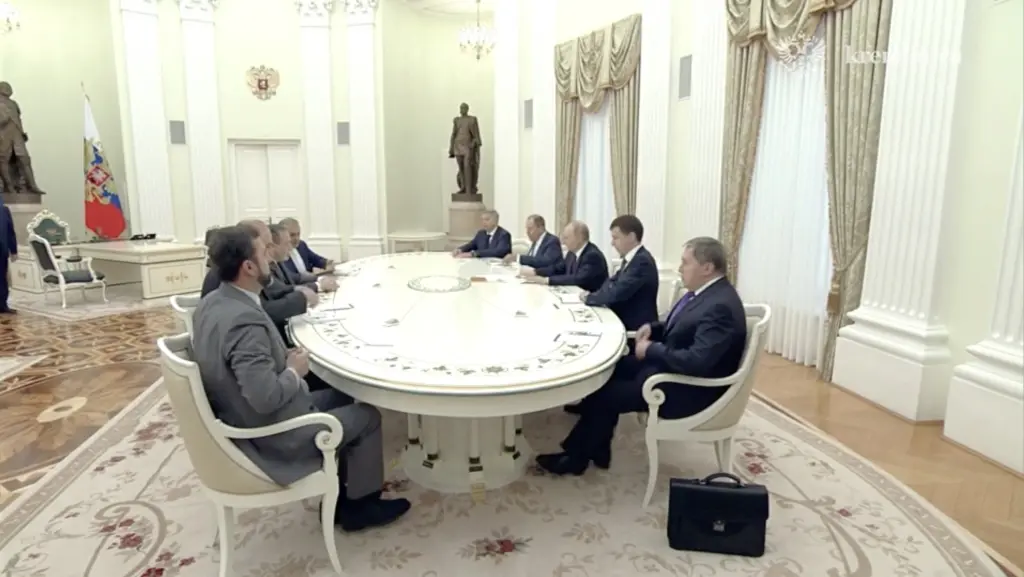Moscow, June 23, 2025 – Russia has issued a stern condemnation of the United States following its airstrikes on key Iranian nuclear facilities, warning that Washington has “opened Pandora’s Box” and risked plunging the Middle East into chaos.
The strongly worded rebuke comes in the wake of coordinated U.S. air raids that targeted Iran’s underground nuclear sites at Fordo, Natanz, and Isfahan on Saturday, June 22. The strikes, carried out using B-2 stealth bombers equipped with bunker-buster bombs and Tomahawk cruise missiles launched from submarines, marked a dramatic escalation in already fragile U.S.-Iran tensions.
Reacting to the development, Russian President Vladimir Putin described the U.S. action as “an act of unprovoked aggression” and expressed unwavering support for Iran during a high-level meeting in Moscow with Iranian Foreign Minister Abbas Araghchi. The Kremlin warned that the assault could have unpredictable repercussions for regional and global security.
“This reckless attack by the United States threatens to unravel the fragile balance in the Middle East and may trigger consequences beyond control,” said Kremlin spokesperson Dmitry Peskov in a press briefing. “The Americans have opened Pandora’s Box.”
Russia’s Deputy Security Council Chief Dmitry Medvedev was even more direct, accusing the U.S. of launching a new war that will only serve to strengthen Iran’s hardline leadership. “This will not weaken the Iranian regime; it will entrench it,” Medvedev stated, cautioning that Washington may have underestimated the long-term fallout of its actions.
The Russian Foreign Ministry, through spokesperson Maria Zakharova, decried the strike as a “clear violation of international norms,” urging all parties to return to the path of diplomacy. She warned that attacking nuclear infrastructure not only risks a regional war but could also provoke Iran to accelerate its controversial nuclear programme.
The Kremlin’s reaction underscores the strategic alliance between Moscow and Tehran, especially in the spheres of nuclear energy cooperation, security coordination in Syria, and resistance to Western influence in the region.
The United States, on its part, maintains that the airstrikes were a defensive measure aimed at halting what it calls Iran’s clandestine pursuit of nuclear weapons. However, U.S. officials have been quick to clarify that the action does not amount to a declaration of war, as no American ground troops have been deployed inside Iran.
Nevertheless, the global fallout from the strikes continues to unfold. China, Turkey, and the European Union have called for restraint, while energy markets have reacted with volatility, given the risk of disruption in the Strait of Hormuz—a key oil transit chokepoint.
With hardliners in Iran calling for direct retaliation against U.S. interests and Russia aligning firmly with Tehran, geopolitical analysts warn that the current tension could spiral into a broader conflict unless urgent diplomatic interventions are made.
As it stands, Russia’s warning of a geopolitical Pandora’s Box being opened is a stark reminder of the delicate fault lines in a region already burdened with overlapping crises and rivalries. The coming days may prove decisive in determining whether these developments will lead to a negotiated de-escalation or an uncontrollable slide into wider confrontation.
